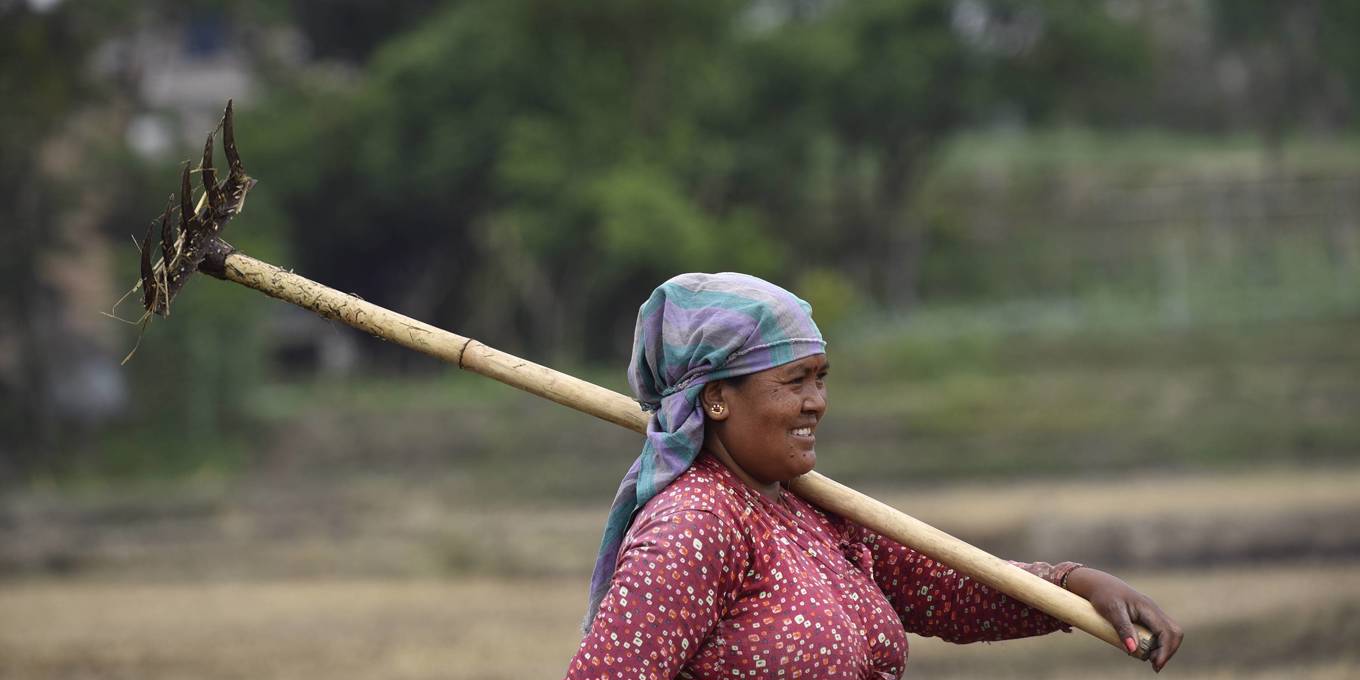

1. pervasive (adj.)
present or noticeable in every part of a thing or place
2. represented (v.)
to be a sign or symbol of something
3. agriculture (n.)
agriculture
4. sector (n.)
one of the areas into which the economic activity of a country is divided
5. permanently (adv.)
always and for ever
6. impetus (n.)
something that encourages a particular activity or makes that activity more energetic or effective
7. transition (n.)
a change from one form or type to another, or the process by which this happens
8. socioeconomic (v.)
related to the differences between groups of people caused mainly by their financial situation
9. monetization (n.)
the act of making money from something
10. textile (n.)
a cloth made by hand or machine
From Farming to Female Empowerment

South Asia’s record on gender equality is weak, to say the least. The region has the world’s highest rate of child marriage, and domestic violence against women is pervasive. Women are over-represented in unpaid work, and under-represented in the labor force, even in countries like Sri Lanka, which has invested heavily in girls’ schooling. Yet there is one sector where women are taking over: agriculture. This is an opportunity for women’s economic empowerment that should not be missed.
When World War II ended, women were not simply going to return to the pre-war status quo. In some sectors – especially higher-skill positions – the WWII labor shock seems to have directly and permanently altered women’s paid employment. More generally, however, women had sampled the economic and personal freedom that employment provides, gained marketable skills, and proved their capabilities. Women’s wartime experience thus gave a powerful impetus to the movement for gender equality.
Will the feminization of farming in Asia’s transition economies have a similar effect? There are no guarantees. Evidence shows that increased representation in agriculture does not necessarily contribute to women’s socioeconomic empowerment.
In fact, even as women take on more agricultural duties, their decision-making power remains limited. They are working on family farms, where they cannot earn an independent income (or, in many cases, any income at all).
One way to address this could be to promote exports of high-value-added agricultural products, such as seafood. Formalizing the production process could encourage the monetization of female labor and improve working conditions, as export-oriented manufacturing of readymade garments, textiles, and footwear has done in many emerging Asian economies.

1. Describe the word ” empowerment ”
2. Who is a powerful woman?
3. What is Women Empowerment? How does it help women? Share your ideas !
“Before, I was a wife who cowered before her husband and brought no income to the family. Now I am a community leader, an income earner and equal partner in my marriage. WE has helped me find my voice, my power, my community.”
Rosalba, WE Member, Guatemala
“Woman must not accept; she must challenge. She must not be awed by that which has been built up around her; she must reverence that woman in her which struggles for expression.”
Margaret Sanger

 Advanced
Advanced 



